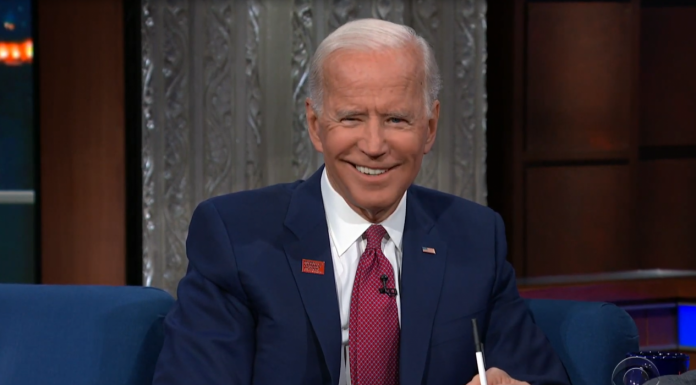(Headline USA) President Joe Biden’s White House is giving its support to studying reparations for black Americans, claiming the systemic injustices of slavery continue to weigh down the community more than 150 years after the constitutional amendment that outlawed it.
The controversial and long-rejected position of paying an undetermined amount of money to minorities would potentially devastate the already faltering and heavily indebted US economy as it jockeys with China for global dominance.
It also would create major logistical problems with determining who received a payout, and could potentially undermine the due process of the 14th Amendment, which promises “equal protection” under the law. That amendment followed, in short succession, the 13th, which banned slavery in the final gasps of the Civil War.
The push for reparations would be a boost for Democratic lawmakers who already are renewing efforts to create a commission on the issue amid the stark racial disparities highlighted by the COVID-19 pandemic.
A House panel heard testimony Wednesday on legislation that would create a commission to examine the history of slavery in the U.S. as well as the discriminatory government policies that affected former slaves and their descendants.
The commission would recommend ways to educate the American public of its findings and suggest appropriate remedies, including financial payments from the government to compensate descendants of slaves for years of unpaid labor by their ancestors.
Biden backs the idea of studying the issue, White House press secretary Jen Psaki said Wednesday, though she stopped short of saying he would sign the bill if it clears Congress.
“He certainly would support a study of reparations,” Psaki said at the White House briefing. “He understands we don’t need a study to take action right now on systemic racism, so he wants to take actions within his own government in the meantime.”
Biden captured the Democratic presidential nomination and ultimately the White House with the strong support of black voters.
However, his opponent, Republican incumbent Donald Trump, also captured a significantly larger share than most GOP presidents in the post-Civil Rights era, when Democrats—seeing their losing hand as the former party of the Ku Klux Klan, began actively pandering to minority voters.
Although his own statements and pro-segregationist voting record were met with extreme scrutiny, Biden campaigned against the backdrop of widespread race riots and an ascendant cancel culture in the wake of George Floyd’s death last May.
But even with Democrats controlling both chambers of Congress and the White House, passing a reparations bill could prove difficult.
The proposal has languished in Congress for more than three decades, winning fresh attention in 2019 only after Democrats won control of the House.
Rep. Sheila Jackson Lee, D-Texas, who has 173 co-sponsors for her bill, said the descendants of slaves continue to suffer from the legacy of that brutal system and the enduring racial inequality it spawned, pointing to COVID-19 as an example.
Data from the Centers for Disease Control and Prevention indicate that black people are nearly three times as likely to be hospitalized because of COVID-19 as white people and nearly twice as likely to die from the illness.
It is unclear whether “systemic racism” is to blame for this, or if there may be other mitigating cultural or biological factors.
Nonetheless, Lee claimed to be offering up her bill as a way to bring the country together.
“The government sanctioned slavery,” Jackson Lee said. “And that is what we need, a reckoning, a healing reparative justice.”
Polling has found long-standing resistance in the U.S. to reparations to descendants of slaves, divided along racial lines.
Only 29% of Americans voiced support for paying cash reparations, according to an Associated Press-NORC Center for Public Affairs Research poll taken in the fall of 2019.
Not surprisingly, most Black Americans favored reparations, 74%, compared with 15% of white Americans.
Rep. Burgess Owens, a first-term Republican from Utah, argued against a reparations commission.
He noted that his great-great-grandfather arrived in America in the belly of a slave ship but went on to escape slavery through the Underground Railroad and become a successful entrepreneur.
He criticized the “redistribution of wealth” as a failed government policy.
“Though it is impractical and a nonstarter for the United States government to pay reparations, it is also unfair and heartless to give Black Americans the hope that this is a reality,” Owens said.
Larry Elder, a Black conservative talk radio host, said that African Americans have made tremendous progress economically and socially, noting that Barack Obama was elected twice to the presidency.
He said that racism has never been less of a significant problem in America than it is now and that reparations would represent one of the greatest transfers of wealth in history.
“Figuring out who owes what is going to be a hell of an achievement,” Elder said.
Former NFL star Herschel Walker also spoke in opposition to the commission, saying reparations would create separation and division.
“I feel it continues to let us know we’re still African American rather than just American,” Walker said.
Adapted from reporting by the Associated Press

